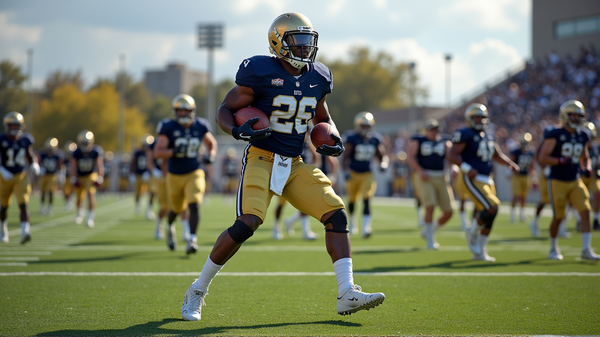Manchester United Prohibits Ferguson from Entering Dressing Room After Matches at Old Trafford: Radical Measures Taken
In a recent turn of events, Manchester United has reportedly restricted Sir Alex Ferguson, the club's most successful manager, from entering the team’s dressing room after matches at Old Trafford. According to the Daily Mail, Ferguson, along with other members of Manchester United's football board, has been requested not to enter the dressing room following games. Though the club denies issuing a direct ban, it is understood that a new "collective understanding" has been reached regarding who is allowed into the dressing room post-match.
This shift marks a significant change in club traditions, as Ferguson had enjoyed access to the dressing room for years, albeit irregularly. The legendary manager, who led Manchester United to countless victories during his tenure, has been a symbol of the club’s legacy for decades. However, his involvement in club affairs seems to have been gradually scaled back in recent times.
A Shift in Club Culture
Sir Alex Ferguson’s visits to the dressing room after matches had become part of the Manchester United culture for many years. Alongside fellow football board members David Gill and Mike Edelson, Ferguson was always a welcome figure in the inner sanctum of the team, where the raw emotions of victory and defeat were most palpable. This practice also extended to other club legends like Sir Bobby Charlton and former director Maurice Watkins, all of whom were seen as the living embodiment of Manchester United’s rich history.
The dressing room, traditionally viewed as a place reserved for players and coaching staff, had long opened its doors to these iconic figures. Ferguson, with his wealth of experience and profound influence on the club, represented an unbroken link between Manchester United’s illustrious past and its present-day aspirations. However, this recent decision suggests that the club may be trying to assert a clearer boundary between past and present, perhaps aiming to establish a more modern identity and leadership structure within the team.
Cost-Cutting Measures and Ferguson’s Role as Ambassador
This change comes in the wake of a series of financial decisions by Manchester United that have directly affected Ferguson. Earlier, the club chose to end its payments to the 82-year-old former manager for his role as an ambassador. Ferguson, who had been earning £2 million annually in this position, was informed that his contract would not be renewed as part of the club’s cost-cutting measures.
As an ambassador, Ferguson represented Manchester United at various events and maintained a connection with fans and the wider football community. His role allowed him to stay involved with the club in a semi-official capacity, though he was no longer part of the decision-making process. The termination of this arrangement has been seen by some as a symbolic severing of ties between the club’s current administration and its storied past, with the financial decision being just one aspect of a broader restructuring.
Manchester United’s financial situation has been a subject of scrutiny in recent years, with fluctuating performances on the pitch and changes in management adding pressure to the club’s budget. The decision to discontinue Ferguson’s ambassadorial role has sparked debate among fans and analysts, some of whom see it as a necessary step in streamlining the club’s operations, while others view it as a disheartening departure from the club’s roots.
The Legacy of Sir Alex Ferguson
It is impossible to overstate the impact that Sir Alex Ferguson has had on Manchester United. His tenure as manager, spanning 26 years, saw the club rise to the pinnacle of English football, securing 13 Premier League titles, five FA Cups, and two UEFA Champions League trophies, among many other accolades. Under his leadership, Manchester United became not only a dominant force in English football but also a global brand, with millions of fans around the world.
Ferguson’s philosophy, based on discipline, hard work, and a relentless pursuit of excellence, permeated every aspect of the club. He was known for his ability to nurture young talent, most notably the Class of ’92, which included players like Ryan Giggs, David Beckham, and Paul Scholes, who would go on to become club legends in their own right.
Moreover, Ferguson’s strategic acumen and psychological insight into the game gave Manchester United a competitive edge that few teams could match. His famous "hairdryer" treatment, where he would vocally reprimand underperforming players, became part of football folklore. Yet, Ferguson was also known for his ability to motivate and inspire his team, often pushing them to perform beyond their perceived limits.
In the years since his retirement, Ferguson has remained a presence at Old Trafford, regularly attending matches and maintaining close ties with the club. His input and advice, though unofficial, have been valued by many within the club, including players, staff, and management. His post-retirement role as an ambassador further solidified his connection with Manchester United, allowing him to continue representing the club on the global stage.
Manchester United’s Future and the Role of Club Legends
The recent developments concerning Ferguson’s reduced role raise questions about the future direction of Manchester United and the place of club legends in shaping that future. As the club seeks to navigate a challenging period, with fluctuating performances on the pitch and a series of managerial changes, there is a growing sense that Manchester United is in the midst of a transition.
The decision to limit Ferguson’s access to the dressing room and end his ambassadorial role may be indicative of a broader strategy to modernize the club and establish a new identity. While Ferguson’s legacy is secure, the current leadership may be seeking to draw a line between past successes and future aspirations. The presence of club legends, while valuable for maintaining a sense of continuity, may be seen as a hindrance to the development of new leadership and ideas within the team.
At the same time, the emotional connection that fans have with figures like Ferguson, Charlton, and others cannot be underestimated. These individuals represent the values and traditions that have made Manchester United one of the most successful and beloved football clubs in the world. The challenge for the club’s current administration will be to balance the need for innovation and progress with the preservation of its rich history and identity.
Conclusion
The recent changes regarding Sir Alex Ferguson’s involvement with Manchester United mark a significant shift in the club’s approach to its past. While Ferguson will always be revered as the architect of Manchester United’s golden era, it appears that the club is moving toward a future where the influence of past figures is less pronounced. The decision to limit access to the dressing room and end Ferguson’s ambassadorial role reflects a broader effort to streamline operations and establish a clearer distinction between the club’s past and present.
As Manchester United looks to the future, it will be crucial for the club to strike the right balance between honoring its rich history and embracing the changes necessary to remain competitive in modern football. While Sir Alex Ferguson’s contributions to the club are undeniable, the time may have come for Manchester United to forge a new path, one that builds on the foundations laid by its legendary figures while paving the way for a new generation of success.




